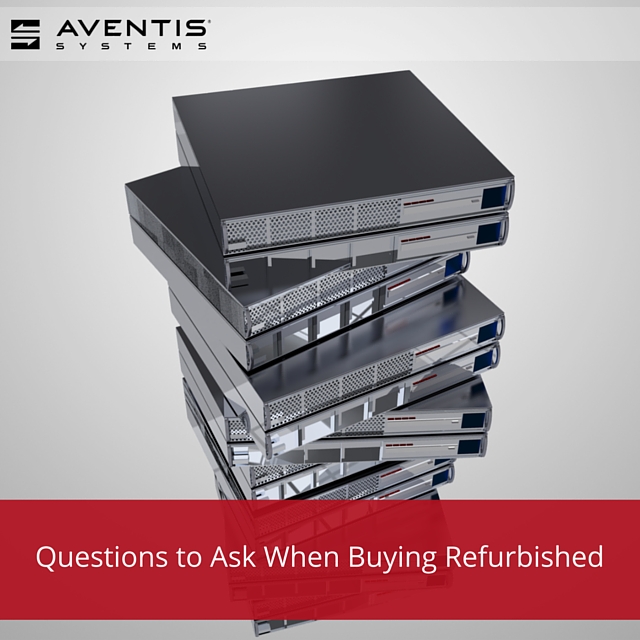Questions You Should Ask When Buying Refurbished
Buying refurbished IT hardware can be a great way to cut down on your organization’s expenditures and free up funding for other purposes. However, while buying refurbished can provide a comparable asset at a significantly lower price than buying new, it also requires a bit more work on your part. Before you consider buying refurbished, it’s important that you understand exactly what you’re getting for your money. Unfortunately, purchasing refurbished equipment from the wrong vendor can mean repair costs and downtime that could exceed the cost of new.
The questions outlined in this post will help you better understand what your refurbished vendor is really offering you.

What is the Return Policy?
Servers, storage arrays and other IT products can use a tremendous amount of energy during everyday operations. As business’s data and computing demands continue to increase, environmentally conscious IT departments must learn to seek out products that are more efficient, allowing them to process increasing amounts of data using similar or even lower amounts of energy.
You need to make sure that the vendor offers a return policy that is long enough to give you an opportunity to set up the system, fully test it, and verify that it meets the needs of your organization. As a rule of thumb, look for a return policy that’s at least 30 days. Anything shorter than this may not give you adequate time to assemble the necessary equipment, cables, etc., to install and test the system. Of course, it should go without saying that it’s important to avoid “sell and run” vendors who don’t offer any meaningful return policy at all.
What Kind of Warranty is Offered for the Hardware?
Warranties for refurbished systems are even more important than they are for new systems. However the two definitely aren’t created equally. With so many different warranties out there, it’s important that you really drill down and find out what you’re actually getting. Consider things like:
- Length: Is the warranty long enough to cover the life of the hardware?
- Coverage: Is the warranty backed up by the vendor or the OEM?
- Support: Is the vendor or OEM that offers your warranty actually qualified to help you when you need it?
Is the Hardware Refurbished or Used?
While all refurbished hardware is previously owned, not all previously owned hardware can accurately be called “refurbished.” If a vendor says that they are selling refurbished systems, they are indicating that they’ve undertaken a very specific process to clean, test and update the product, replacing consumable parts like hard drives and checking for any potential problems. Only by buying hardware that has been through this thorough process can you feel fully confident about your purchase.
It’s your responsibility to keep the vendor honest by figuring out what their refurbishing process actually entails.
How Old is the Equipment?
It's best that you avoid buying equipment that's too old. Even though your purchase would (hopefully) be covered by a strong warranty, it's still difficult to find replacement parts for these older systems, which could lead to reliability and business continuity problems.
The sweet spot for refurbished hardware is three to five years old. These systems offer all of the benefits of buying refurbished, including a significantly lower price point, while still offering relatively recent technology and an ample supply of replacement parts.
To put it simply, the vendor you choose to work with will affect your experience buying and using refurbished IT equipment more than anything. Make sure your vendor is transparent and supportive throughout the entire sales process.
If you're looking to learn more about buying refurbished hardware, Aventis Systems is here to help. Contact us today to get all your questions answered.